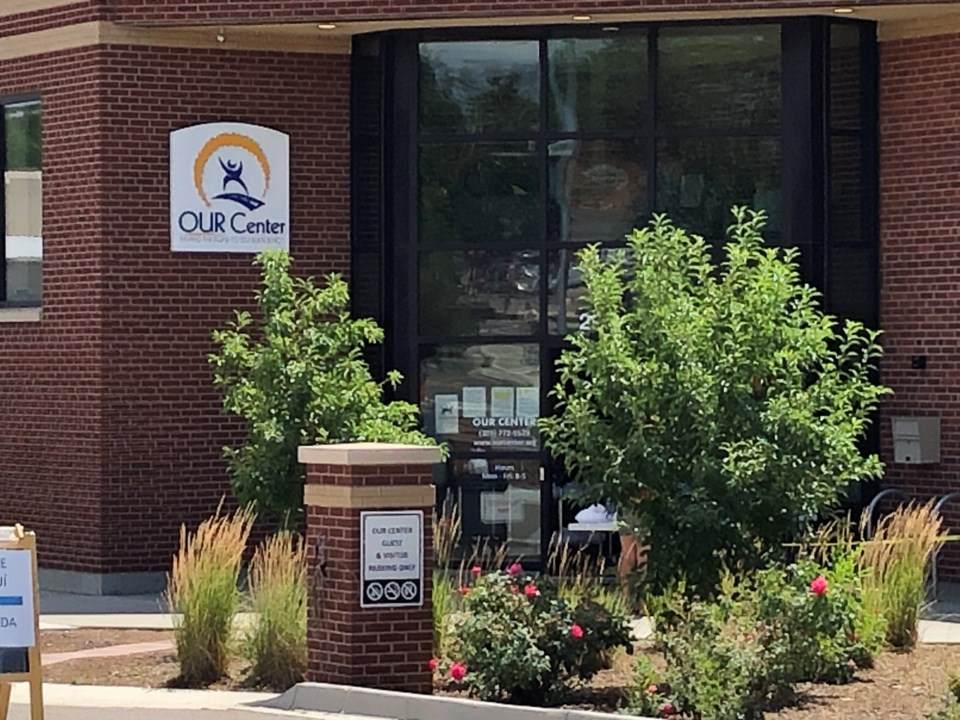The OUR Center this week received a boost to help in its efforts to keep people in their homes as the coronavirus pandemic continues.
First National Bank of Omaha, or FNBO, gave the Longmont nonprofit a $10,000 grant “intended specifically to help people with housing needs, basic needs during this time of the coronavirus,” said Elaine Klotz, OUR Center development director.
The OUR Center is a family resource center at 220 Collyer St., where it works toward its mission to “pave the road to self-sufficiency.” The organization provides help to anyone who seeks it by providing food, assistance in finding long-term housing, budget counseling and more.
From January to June 2019, the organization issued 293 vouchers for rent or utility assistance. During the same time period in 2020, that number increased to 731. The amount of assistance this year is three times the typical amount, Klotz said, adding many people seeking aid have never done so before.
First National Bank of Omaha, FNBO, reached out to the Community Foundation Boulder County stating it wanted to “contribute to COVID-19 relief efforts by donating to services in support of housing stability, we thought that a (family resource center) would be a good fit. We chose OUR Center specifically because Longmont sees higher numbers of people in need,” said Gretchen Minekime, vice president of communications for the foundation.
The OUR Center provides an average of $500 to 600 for rent assistance. The grant will help up to 20 families, Klotz said.
“We are just thrilled and very grateful for their assistance because that can help stabilize up to 20 households and keep them in their homes, especially during these unprecedented times,” she said.
One of the many stories told by the OUR Center includes “Trish,” who was hospitalized with COVID-19 for 30 days. Prior to getting sick she worked as a dental assistant. She had never asked for help before she became ill but now receives rent assistance through the OUR Center.
Klotz said OUR Center expects to see needs increase in the near future.
“Of course we can’t predict how long the needs are going to be elevated and because there are things that may be coming to an end like additional unemployment insurance assistance. We don’t know if there is going to be another round of stimulus, so we anticipate that the needs are going to ramp up as some of the other kinds of assistance may be waning,” she said. “We’re really just trying to anticipate that as much as possible and reach out to the community to make sure that we can continue to help as many people as possible.”
Noting it “is always better to help someone keep their existing housing than to get them back into housing if they lose their homes,” the Community Foundation’s Minekime said the pandemic has put a fine point on the growing need for affordable housing.
“Losing housing is devastating to individuals and families, and it is a much heavier and more expensive lift from a programmatic and policy angle to get some back into stable housing. COVID-19 has been very effective at highlighting and expanding the pre-existing gaps and inequities in our systems,” she said. “Affordable housing has long been a problem in Boulder County that has now become worse as so many have lost their incomes. While many groups are doing great jobs pitching in to provide emergency assistance, (family resource centers) are still the deepest reserves for rental assistance and help with medical and utility bills.”
Those who receive housing and utility assistance from OUR Center undergo assessments, which are being conducted by phone or email instead of in-person because of the pandemic. The interview process examines income, household makeup, financial situation, extenuating circumstances and other factors to determine the best allocation of funds, Klotz said.
“It may not be everything a family needs financially but we will also supplement by making sure they know about our food program, our daily meals, our groceries that they can take home and referrals to other community resources that they may be eligible for,” she said.



